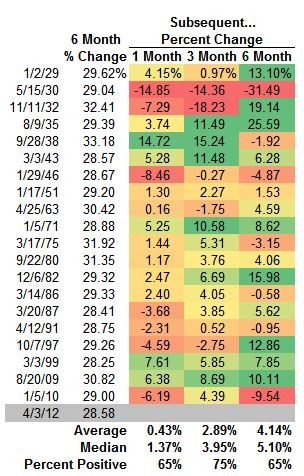By: Steve Sosnick, Chief Strategist at Interactive Brokers
One of the most durable market mantras is “Don’t Fight the Fed.” Many popular adages have truthful roots, and this is certainly no exception. The logic is quite sound. When the Federal Reserve (or other major central banks) are cutting rates or injecting liquidity into credit markets it creates a favorable climate for risk assets. Unfortunately for investors, the inverse is also true. Now that the Fed is about to embark upon a program of balance sheet reduction amidst a backdrop of rising interest rates, it is crucial for us to reassess exactly what fighting the Fed now entails.
For the better part of the past 13 years, and certainly for most of the past two, stocks and bonds have benefited from a Fed whose stance has ranged from generally accommodative to wildly accommodative, punctuated by sporadic, tentative attempts to withdraw liquidity. The latter events, like 2013’s “taper tantrum” and the rate hikes of late 2018 were accompanied by volatility and lower stock prices. The Fed reversed their tightening measures when they began to affect the smooth functioning of credit markets. That led to the perception that there is a “Fed Put” underneath the stock market, even though I believe that most investors misunderstand that notion.
The precedents set during the Fed’s attempts to curb rising liquidity led us to make this comment at the end of last year:
The primary theme is for investors to expect more volatility than we’ve seen over the past year-and-a-half. The changing monetary environment should be the cause. At the risk of introducing an inconvenient analogy, investors have become addicted to ever-present monetary stimulus. Even under the care of a skillful clinician – or central banker – patients who are withdrawing from an addictive substance can suffer setbacks en route to a cure.
One could assert that this year’s heightened volatility was the result of investors’ anticipation of the Fed’s steps to remove liquidity from the market, exacerbated by the exogenous shocks caused by Russia’s invasion of Ukraine. The negative impact of the latter events can not be discounted, but I question whether investors are fully discounting the effect of hikes. It is my experience that while markets are excellent at anticipating future events that will impact corporate earnings, they tend to react with a lag to changes in monetary policy. For one example (of many), consider that the Fed had an emergency 50 basis point rate cut on March 3, 2020 and then a further 1 percent cut on March 15, yet stocks only bottomed on March 23rd. History shows that more subtle central bank moves have an even slower reaction. That is why I find it difficult to believe that the effects of the Fed’s hikes and quantitative tightening have been fully priced into equity prices.
In short, if you profited by not fighting the Fed when they were busily engaged in adding liquidity to the system, you should think very carefully about whether your current investment philosophy involves fighting the Fed now.
This post first appeared on June 1st, 2022 on the Traders’ Insight Blog
PHOTO CREDIT: https://www.shutterstock.com/g/pabrady63
Via SHUTTERSTOCK
DISCLOSURE: INTERACTIVE BROKERS
The analysis in this material is provided for information only and is not and should not be construed as an offer to sell or the solicitation of an offer to buy any security. To the extent that this material discusses general market activity, industry or sector trends or other broad-based economic or political conditions, it should not be construed as research or investment advice. To the extent that it includes references to specific securities, commodities, currencies, or other instruments, those references do not constitute a recommendation by IBKR to buy, sell or hold such investments. This material does not and is not intended to take into account the particular financial conditions, investment objectives or requirements of individual customers. Before acting on this material, you should consider whether it is suitable for your particular circumstances and, as necessary, seek professional advice.
The views and opinions expressed herein are those of the author and do not necessarily reflect the views of Interactive Brokers LLC, its affiliates, or its employees.
Any trading symbols displayed are for illustrative purposes only and are not intended to portray recommendations.
In accordance with EU regulation: The statements in this document shall not be considered as an objective or independent explanation of the matters. Please note that this document (a) has not been prepared in accordance with legal requirements designed to promote the independence of investment research, and (b) is not subject to any prohibition on dealing ahead of the dissemination or publication of investment research.



